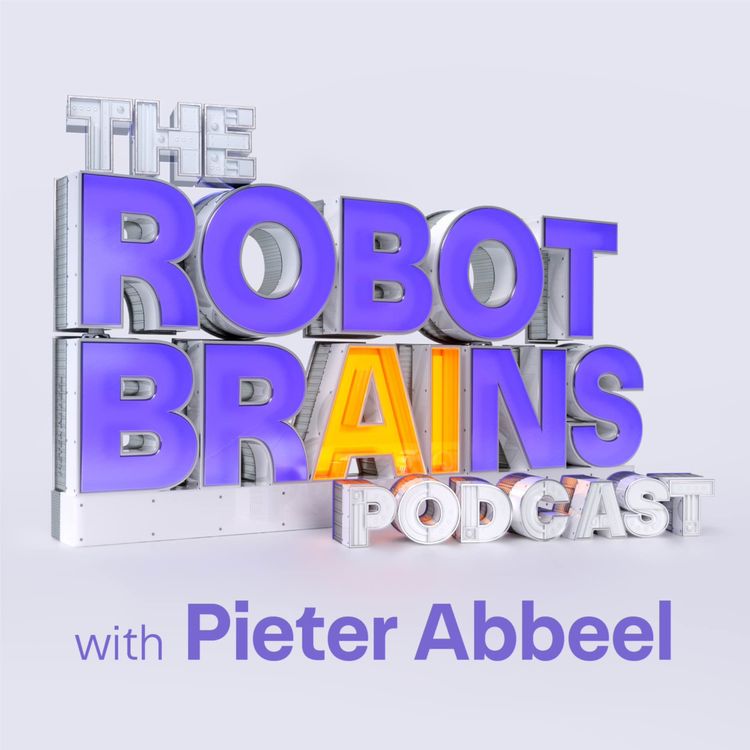Share

The Robot Brains Podcast
Flora Tasse on building computer vision-based customer service models
For Episode 9, we welcome an AI researcher and entrepreneur who has been on a remarkable journey, Flora Tasse. She grew up in Cameroon, where she completed her Bachelors in Mathematics at the University of Buea. She received a second Bachelors and a Masters in Computer Science at Rhodes and Cape Town in South Africa. She then went on to the UK, and earned her PhD in 3D computer vision at Cambridge, as well as interning at Microsoft and Google.
Rather than joining a tech giant, Flora decided instead to found her own company Selerio, pioneering the commercialization of Artificial Intelligence and Augmented Reality. Selerio got acquired by Streem. where she’s now leading the AI Research team. Streem offers AI and AR-powered communications, bringing AI to the frontlines of customer service.
Pieter and Flora also discuss her personal experience with the lack of diversity in AI and her work with organizations like Black in AI to improve inclusivity.
SUBSCRIBE TO THE ROBOT BRAINS PODCAST TODAY | Visit therobotbrains.ai and follow us on YouTube at TheRobotBrainsPodcast, Twitter @therobotbrains, and Instagram @therobotbrains.
| Host: Pieter Abbeel | Executive Producers: Alice Patel & Henry Tobias Jones | Production: Fresh Air Production
More episodes
View all episodes

20. Jitendra Malik: Building AI from the ground-up, sensorimotor before language
01:15:50||Season 3, Ep. 20Jitendra Malik, Professor of EECS at UC Berkeley discusses with host Pieter Abbeel building AI from the ground-up and sensorimotor before language. Subscribe to the Robot Brains Podcast today | Visit therobotbrains.ai and follow us on YouTube at TheRobotBrainsPodcast and Twitter at @pabbeel.
19. Seb Boyer of Farmwise: AI that helps feed the world
50:26||Season 3, Ep. 19Seb Boyer of Farmwise discusses with host Pieter Abbeel AI that helps feed the world. Subscribe to the Robot Brains Podcast today | Visit therobotbrains.ai and follow us on YouTube at TheRobotBrainsPodcast and Twitter at @pabbeel.
18. John Schulman of OpenAI on ChatGPT: invention, capabilities and limitations
42:29||Season 3, Ep. 18John Schulman, co-founder OpenAI, discusses with host Pieter Abbeel the invention, capabilities, and limitations of ChatGPT. Subscribe to the Robot Brains Podcast today | Visit therobotbrains.ai and follow us on YouTube at TheRobotBrainsPodcast and Twitter at @pabbeel.
17. Yaniv Altshuler: reducing cow methane emissions with AI
53:49||Season 3, Ep. 17Yaniv Altshuler, MIT Media Lab researcher, joins Pieter Abbeel to discuss reducing cow methane emissions with AI and more. Subscribe to the Robot Brains Podcast today | Visit therobotbrains.ai and follow us on YouTube at TheRobotBrainsPodcast and Twitter at @pabbeel.
16. Woody Hoburg: NASA Astronaut directly from the International Space Station
17:39||Season 3, Ep. 16Woody Hoburg, a member of NASA’s Expedition 69 crew, joined Pieter Abbeel to discuss his life and work currently aboard the International Space Station.Subscribe to the Robot Brains Podcast today | Visit therobotbrains.ai and follow us on YouTube at TheRobotBrainsPodcast and Twitter at @pabbeel.
15. Jesse Levinson of Zoox: reinventing personal transportation from the ground up
01:00:47||Season 3, Ep. 15Jesse Levinson, co-founder and CTO of Zoox joins Pieter Abbeel to discuss reinventing personal transportation from the ground up. Subscribe to the Robot Brains Podcast today | Visit therobotbrains.ai and follow us on YouTube at TheRobotBrainsPodcast and Twitter at @pabbeel.
14. Noam Brown: from Open AI on solving Poker and Diplomacy with AI
01:14:38||Season 3, Ep. 14Noam Brown joins host Pieter Abbeel to discuss solving poker and Diplomacy with AI. Subscribe to the Robot Brains Podcast today | Visit therobotbrains.ai and follow us on YouTube at TheRobotBrainsPodcast and Twitter @therobotbrains.
13. Stephen Balaban: building the most cost-effective AI cloud
39:23||Season 3, Ep. 13Stephen Balaban, CEO and founder of Lambda joins host Pieter Abbeel to discuss building the most cost-effective AI cloud.Subscribe to the Robot Brains Podcast today | Visit therobotbrains.ai and follow us on YouTube at TheRobotBrainsPodcast and Twitter @therobotbrains.
12. Rocky Duan: from OpenAI to Covariant and building foundation models for robotic automation
57:02||Season 3, Ep. 12Rocky Duan, CTO of Covariant joins joins Host Pieter Abbeel to talk about his time at OpenAI to founding Covariant to build foundation models for robotic automation. Subscribe to the Robot Brains Podcast today | Visit therobotbrains.ai and follow us on YouTube at TheRobotBrainsPodcast and Twitter @therobotbrains.